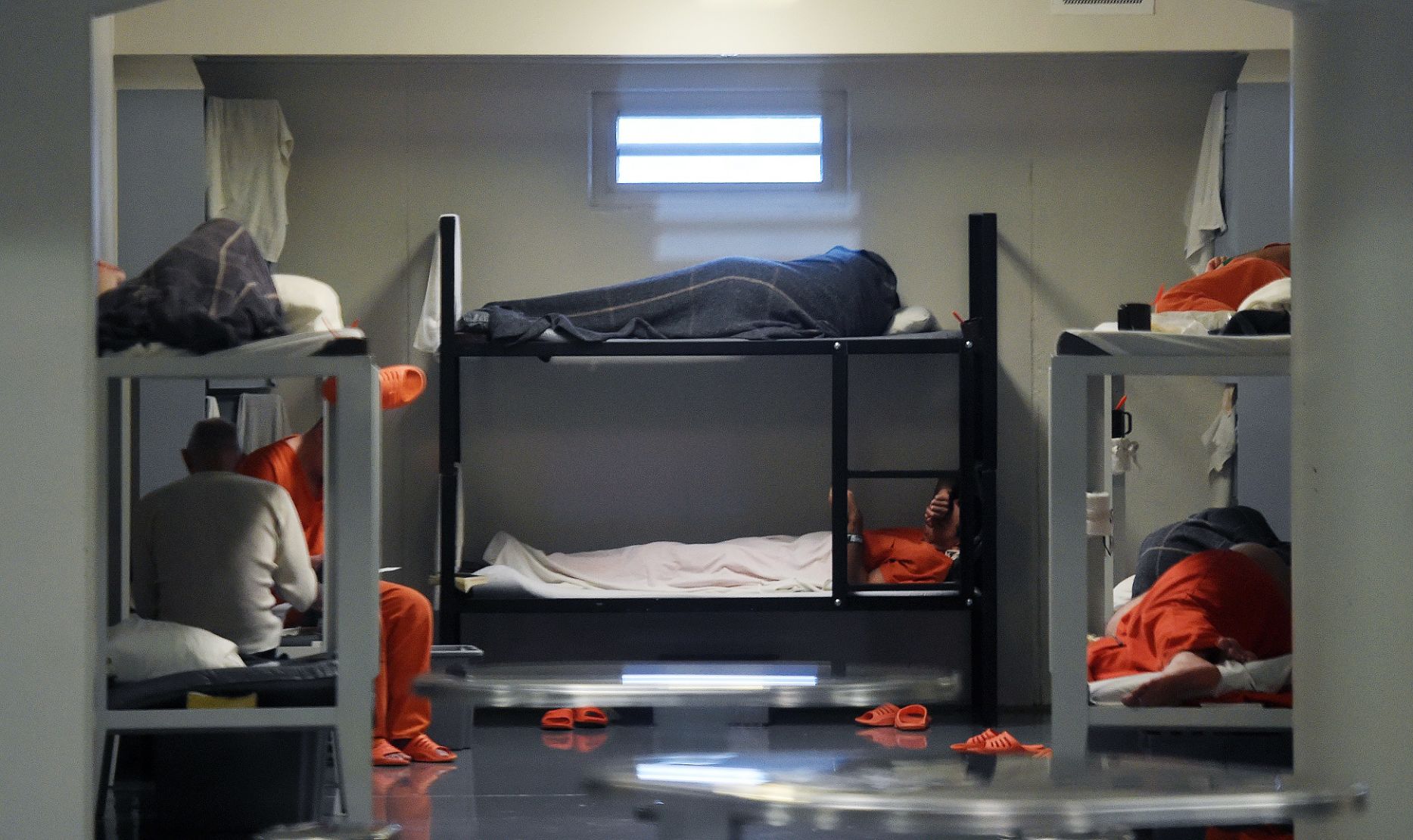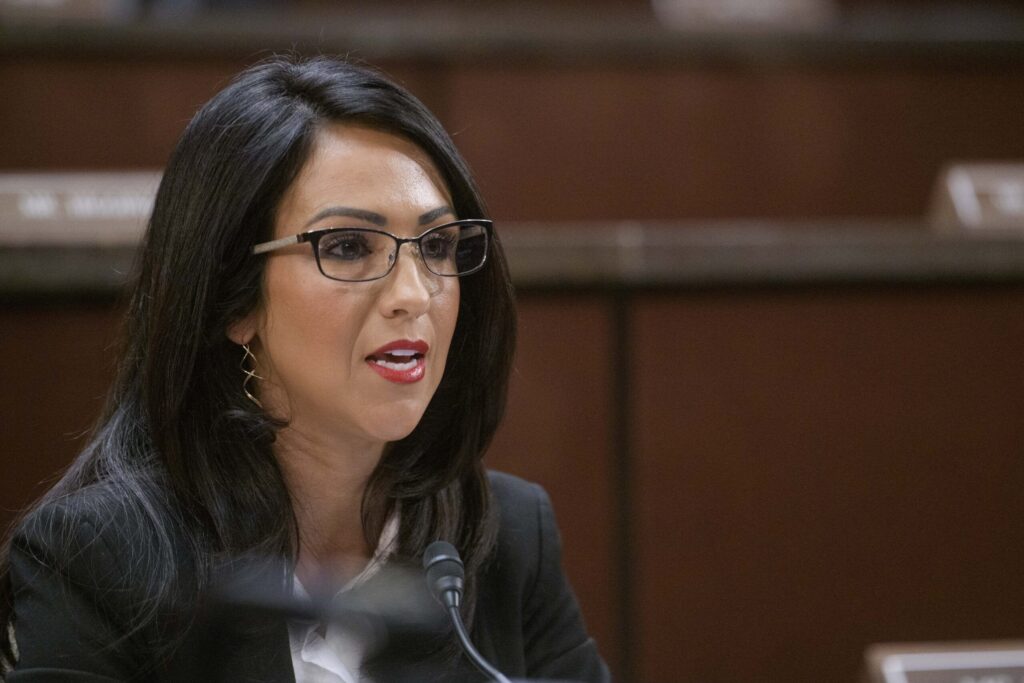Senate panel advances bill to automatically seal non-violent criminal records

Harley Blakeman became homeless at the age of 16. His father died and his mother, who was addicted to drugs, pushed young Blakeman onto the streets. By the time he was 19, Blakeman had been arrested multiple times and ended up serving 14 months in prison for a non-violent drug charge.
After he was released from prison, Blakeman decided to turn his life around. He moved to Ohio, went back to school, and, within five years, graduated with honors from Ohio State University’s business school.
However, his troubles were far from over. Due to his criminal record, he was rejected from more than 80 jobs by the time he graduated, Blakeman said.
“I graduated unemployed top of my class. Four months after graduation, I was being rejected for assistant manager positions at fried chicken restaurants,” Blakeman said. “This follows you and there’s nothing you can do about it.”
Blakeman went on to start Honest Jobs, a fair-chance employment platform headquartered in Denver. But more than 10 years after his prison time, he said he is still being denied apartments and job opportunities because of his criminal record.
Now, Colorado lawmakers are pushing legislation that sponsors say will help more than one million Coloradans like Blakeman by automatically sealing their criminal records.
If passed, Senate Bill 99 would implement an automatic sealing process for non-violent criminal records. The legislation would apply to those who are eligible to request record sealing under the current system, meaning they have finished their sentence, completed a required waiting period and have not committed another criminal offense.
A Senate panel unanimously advanced the bill on Thursday, following nearly two hours of testimony from supporters. No one spoke in opposition to the bill.
“Holding people back from securing work and housing because of old records is extremely costly and fiscally irresponsible,” said bill sponsor Sen. Dennis Hisey, R-Colorado Springs. The bipartisan bill is also sponsored by Denver Democrat Sen. Robert Rodriguez.
Dozens of people from the business community rallied behind the bill – dubbed the Clean Slate Act – saying it will help address the labor shortage by removing a barrier to employment, education and housing for residents with criminal records. In a press conference before Thursday’s vote, 30 local businesses and associations came out in support of the bill.
The legislature is tackling the proposal at a time when Colorado and the rest of the country are in the midst of a pandemic-induced labor shortage. In July 2021, 7.7% of jobs in Colorado were unfilled – an all-time high for the state, according to the U.S. Bureau of Labor Statistics.
“People are struggling and we must prioritize effective solutions to revitalize our workforce if we want to recover,” said David Emerick with JPMorgan Chase. The multibillion dollar company is backing the bill years after cofounding the Second Chance Business Coalition, helping people with criminal records reenter the workforce. “We just think it’s the right thing to do. … They’re great employees, their retention is high, their work is good and it’s been a really great experience.”
Approximately 1.125 million Coloradans with criminal records are eligible to apply for sealing but have not, according to state estimates. Bill supporters said many don’t pursue record sealing because the current process, which involves filing a petition with the court and paying a filing fee, is expensive and difficult.
Under the bill, those Coloradans could have their records sealed without having to take any action. The bill would also prohibit employment and housing discrimination based on the contents of a sealed criminal record.
The Colorado District Attorney’s Council previously opposed the bill, saying petitioning the court is an essential process. The council moved to a neutral position Thursday after the bill was amended. With the amendment, district attorneys could object to automatic record sealing for non-drug felonies by filing notice to a court. The court could deny record sealing based on a victim’s concern or a media outlet’s need to access records.
“We are certainly supportive of offenders being rehabilitated and entering back into the community and reintegrating into society, but we also have an obligation as the law is currently written to ensure certain standards are met and that there is an analysis of cases where there needs to be,” said Arnold Hanuman, deputy director of the council.
Supporters of the bill also argue that automatic record sealing would lower crime. They cited a 2020 Harvard Law Review study which concluded that people who have gotten their criminal records sealed or expunged are less likely to reoffend and pose a lower crime risk than the general population.
Dr. Robert Davis said the bill could finally put an end to over 20 years of questioning for a mistake that he moved on from long ago.
“I have been mystified and appalled by the numerous times I’ve had to explain to potential employers why I had an arrest and jail time on my record,” Davis said. “I’m still answering questions for a three-day jail stay for a speeding violation that happened more than two decades ago. Records prevent highly qualified, highly eager people from moving forward.”














